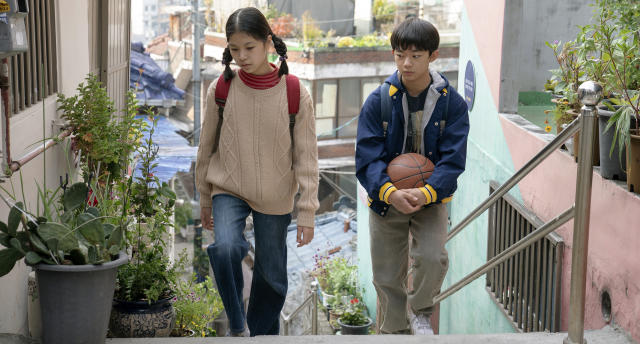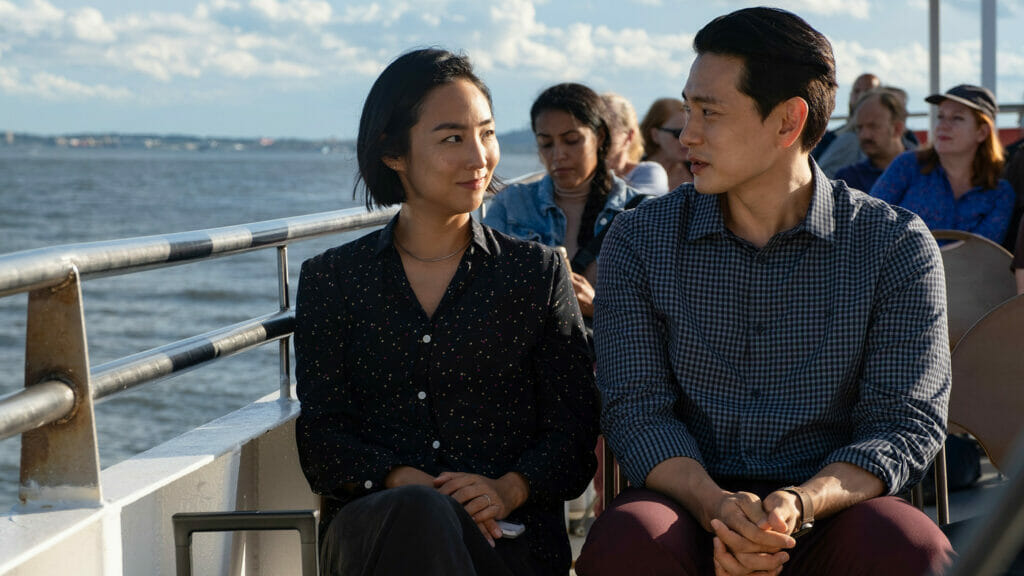Read also:
How to Watch FX Live Without CableHow To Watch AMC Without CableHow to Watch ABC Without CableHow to Watch Paramount Network Without CableCeline Song makes an unforgettable feature debut with a bittersweet drama in which a reunion between old friends brings unexpected emotions.
It doesn’t take much for someone who once meant a whole lot to you to creep into your thoughts every now and then. It’s not an everyday obsessive thing, where they’re a shadow lingering over you. It’s softer, more subtle: a snippet of a song, or something that reminds you of a private joke once shared. Even if the fire has long burned out, an ember or two will glow for an instant. Then it’s gone, and the life you’ve lived without them goes on.
In an astonishingly (and enviably) confident feature debut, Celine Song writes and directs Past Live, a gentle and moving drama about childhood sweethearts who reconnect as adults, lose touch again, and then reconnect once more a decade later. A long thread of time and first love keeps bringing them back together, if only briefly, for reasons they don’t quite understand, and maybe aren’t meant to. If you’re looking for something raw and passionate, where two lovers defy convention to be together, you might be disappointed. It’s more subtle and mature than that. While the situation is emotionally complicated, the characters understand that for all the time they could spend wondering “what if,” things worked out as they were supposed to.
Past Lives opens in Seoul at the end of the 20th century, as middle school classmates Na Young and Hae Sung become each other’s first real crushes. They’re not embarrassed about it, and even their parents approve, encouraging them to go on a date (inasmuch as you can go on a date with both of your mothers present). The course of true love never did run smooth, however – their relationship (such as it is) has barely begun before Na Young announces that her family is immigrating to Canada. Neither of them seem particularly upset about having to break up so soon, as Na Young is excited about her new life, and the taciturn Hae Sung is too stoic to say much either way. The last thing he says to her is an indifferent “bye,” as if he fully expects to see her at school the next day.
Twelve years pass, and Na Young is now Nora (Greta Lee), a writer living in New York City and so comfortably assimilated she speaks English without a trace of an accent. Hae Sung (Teo Yoo) remained in South Korea, and when Nora randomly looks him up on Facebook one evening, she discovers that he’s been looking for her too. They reunite over Skype, and after a few moments of nervous laughter it’s as if no time has passed at all. Though Nora notes that the only person she speaks Korean with anymore is her mother, she hasn’t forgotten a bit of it, and her conversations with Hae Sung are lively and joyful. The 13 hour time difference, which often forces them to be available for each other at odd hours of the night, means little.

However, when it becomes apparent that neither of them are in a position to travel to meet each other in person, Nora puts the brakes on the whole thing, telling Hae Sung that she wants to stop talking for a little while. Too much of their time has become dedicated to making room for their conversations, setting aside their everyday real lives for something that has no endgame in sight. It’s not a breakup, exactly (because they were never really dating), just a step back before feelings start getting all tangled up into it, though it’s clear that they already have. Hae Sung meekly agrees, though this time, as opposed to when they were kids, you can see in his eyes that it hurts, that little heartbreak of dashed hopes.
Though Nora promises that it won’t be long before they talk again, life gets in the way for both of them, and another twelve years pass. Now, Nora is married to a writer named Arthur (John Magaro), who adores her. Hae Sung is newly single but otherwise doing alright for himself, and making his first trip to the U.S., ostensibly on business but that might not be entirely true. For the first time since they were children, he and Nora are in the same place together, and things suddenly get a little complicated. Their looks at each other linger more, and the pauses in their conversations feel heavy with the weight of the things they want to say and can’t. Now, saying goodbye is considerably harder than just clicking “end call.”
Again, if you’re looking for torrid declarations of undying love as a cuckolded spouse seething in anger, you won’t find any of that here. While Arthur is awkward and insecure in Hae Sung’s presence, it’s because he understands the bond Hae Sung shares with Nora, both because they’ve known each other for so long, and they’re both Korean. He’s shut out by default, and whatever sadness he expresses isn’t because he feels threatened, or that they’re keeping some kind of secret from him, but because it’s a part of Nora he’ll never have the chance to know.

The thread that runs through Past Lives isn’t red hot passion, but the Korean concept of in-yun, or “providence,” the idea that everyone we encounter in life, even the most seemingly meaningless interaction, is someone we’ve been connected to in a past life. They may not mean anything to us now, in this life, but they did once, maybe hundreds of times, perhaps a friend, a lover, a sibling, a nemesis. Fate brings us together with these people again and again, life after life, sometimes in a huge, world-changing event, or sometimes just brushing past each other in a crowd. It’s not clear whether Nora actually believes this, or thinks it’s “just something Koreans say to seduce someone,” as she tells Arthur. But Hae Sung does, and his trip to the U.S. seems less a matter of fate, and him trying to take control of it, just to see what happens, to see if things can be changed in any way.
Though it’s definitely a tearjerker, Past Lives isn’t a movie to leave you swooning. It may leave you, as it did me, thinking with tenderness about the people who have come in and out of your life “like waiters in a restaurant,” as Stephen King once wrote. They were there once, and they were there before, and they will be there again, in another life, in many lives ahead. You’ll know them. You’ll see something in them, these people you’ve walked down the road with many times, if only for a moment. Maybe, at some point, it will be exactly how you always wanted it to be.
Free of any real conflict, Song tells much of her story and the emotions that come with it through body language. Dialogue can’t put as strongly across what the polite distance Nora and Hae Sung keep from each other at first can, or their slowly turning to face each other in silence, or the way Nora quietly, unwittingly turns her back on Arthur while she and Hae Sung converse in their native Korean. She’s not being rude, or at least not intending to be. But the pull to spend some time with the past, and all the things Hae Sung symbolizes (her childhood, Korean tradition, the road not taken) is powerful, even if Arthur is her now.
That Song and her cast (particularly Lee, who up till now has done mostly comedic roles) can express all this without carefully spelling it out to the audience is remarkable. Past Lives is a remarkable movie, bittersweet and quietly philosophical, a film for those who understand that while certain things are not “meant to be” in this world, they have been, and will always be in another. There’s no such thing as goodbye forever.
Past Lives is now in theaters.